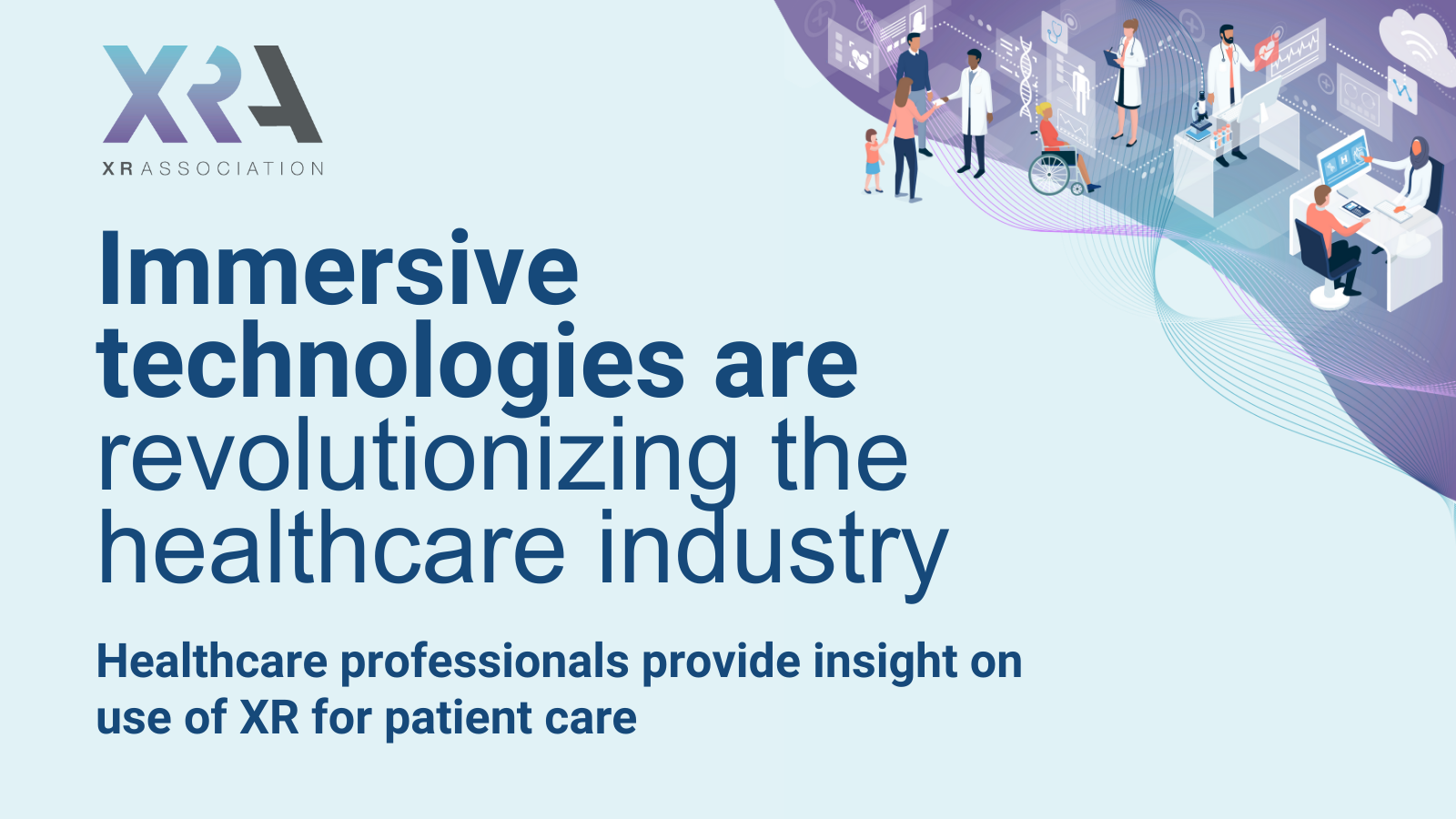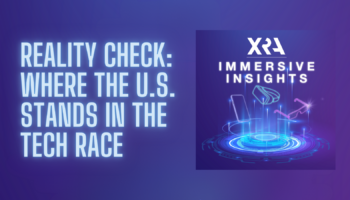84 percent of healthcare professionals believe immersive technologies will positively impact the industry
Washington D.C. – As the healthcare industry looks to meet the ever-growing challenges of caring for a modern population, more and more, healthcare professionals are utilizing immersive technologies as a tool to deliver precise, positive patient services.
In a recent survey of healthcare professionals conducted by the XR Association (XRA), the trade association representing the growing ecosystem of augmented, mixed, and virtual reality companies, seventy-seven percent of respondents indicated they used XR with patients, and of those who deployed XR with patients sixty-four percent reported positive patient experiences.
“Healthcare is one of the fastest-evolving fields. Whether discovering new treatments for existing illnesses or finding ways to stem the spread of new diseases, healthcare workers are on the front lines of keeping us healthy. And their job keeps getting tougher,” said Elizabeth Hyman, CEO of the XR Association. “Immersive technology is increasingly being deployed to assist their efforts. From state-of-the-art training to precision treatments and access to care, XR technology is changing how we practice medicine.”
XR applications’ immersive and interactive nature is expected to bridge gaps in medical diagnosis, treatment and education. XRA’s accompanying infographic summarizes the survey’s results and provides a snapshot of the healthcare industry’s growing use and embrace of XR for precision medical and healthcare services. The survey polled nearly 500 patient-facing healthcare professionals across the industry, including doctors, nurses, nurse practitioners, dentists and physician’s assistants. It asked questions about their experiences with XR and how the industry is responding to the introduction of immersive technology.
The healthcare field is becoming increasingly challenging for its workers, with 3 out of 5 nurses reporting feeling overwhelmed. Immersive technologies could prove invaluable in alleviating some of these challenges providing beneficial advantages and support in multiple areas of the field, including professional clinical training, medical education, mental health treatment, and improved surgical outcomes.
“XRA’s healthcare survey and companion developer’s guide has been months in the making and informed by professionals in the healthcare sector and XRA member companies working on integrating XR into medicine,” Stephanie Montgomery, XRA’s VP of Research and Development, said. “As XR is increasingly adopted across industries, it’s crucial to understand the attitudes, use cases and existing challenges to implementing these tools responsibly.”
For example, virtual 3D modeling allows surgeons to practice surgical procedures in a virtual environment improving patient outcomes. Immersive technology also improves access to treatments, including mental health and physical therapy. XRA’s survey provides a glimpse into the future of healthcare, including improving efficacy in cost, privacy, and logistical considerations for doctors and patients.
Along with the survey and infographic, XRA is publishing the fifth chapter of its Developer’s Guide, “Designing Immersive Experiences for Healthcare.” The latest installment of the developer’s guide was informed by XRA’s conversations with healthcare professionals and member companies and offers a set of industry-backed best practices for creating XR programs to benefit the healthcare space.
The insights from healthcare professionals pave the way for a more innovative, patient-centric, and advanced healthcare system.
Click here to view the infographic.
Click here to view the accessible version.





